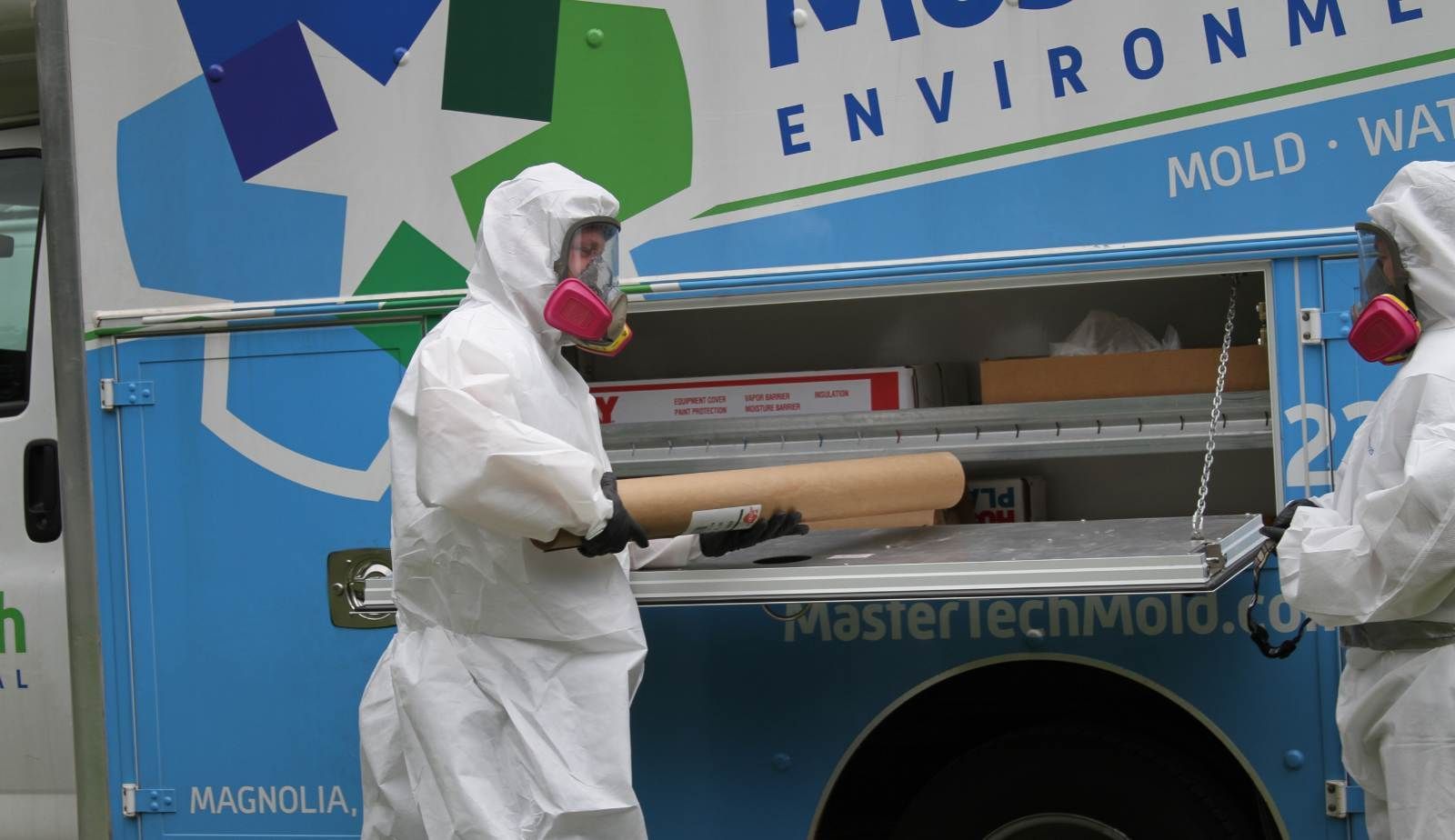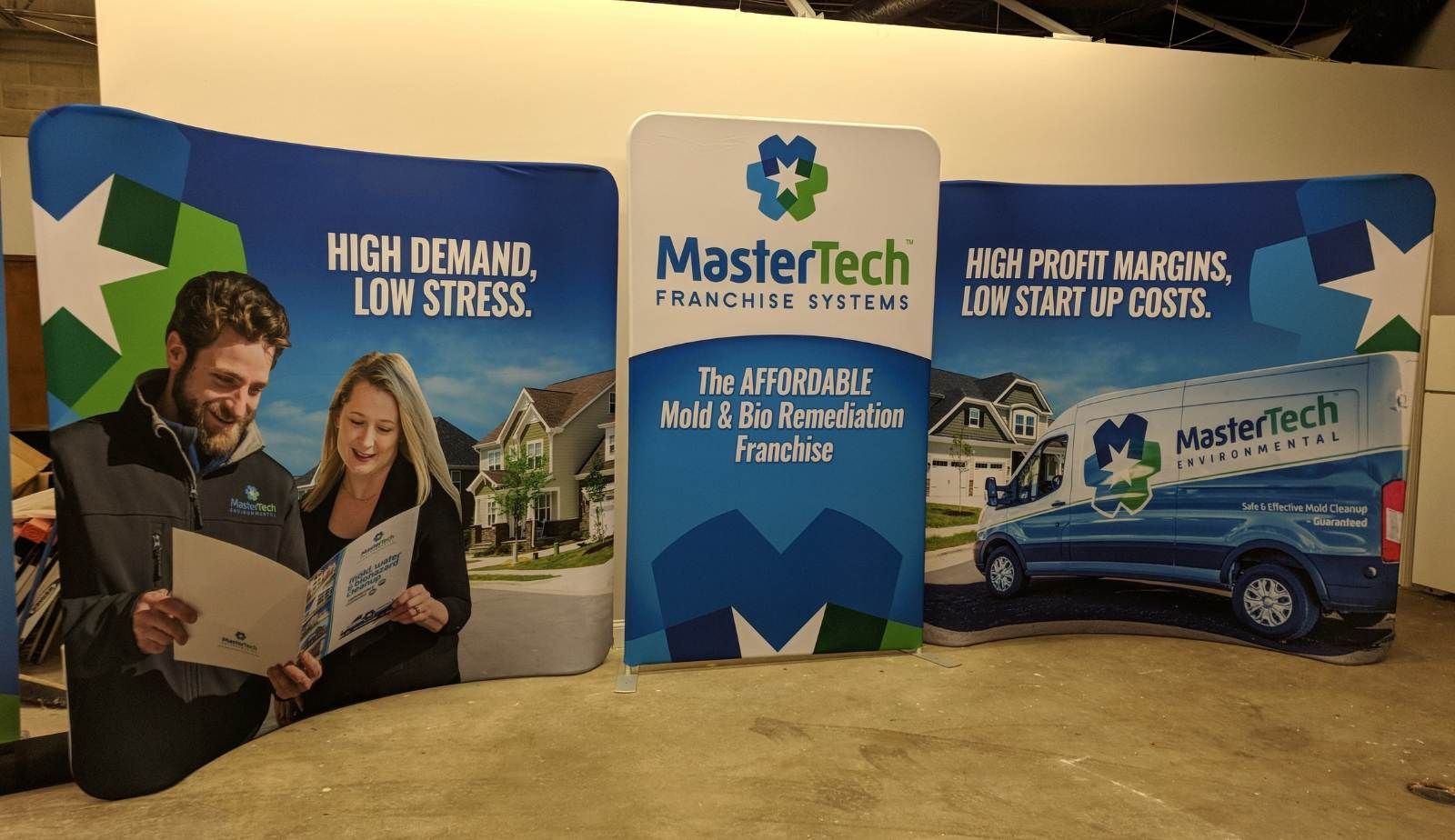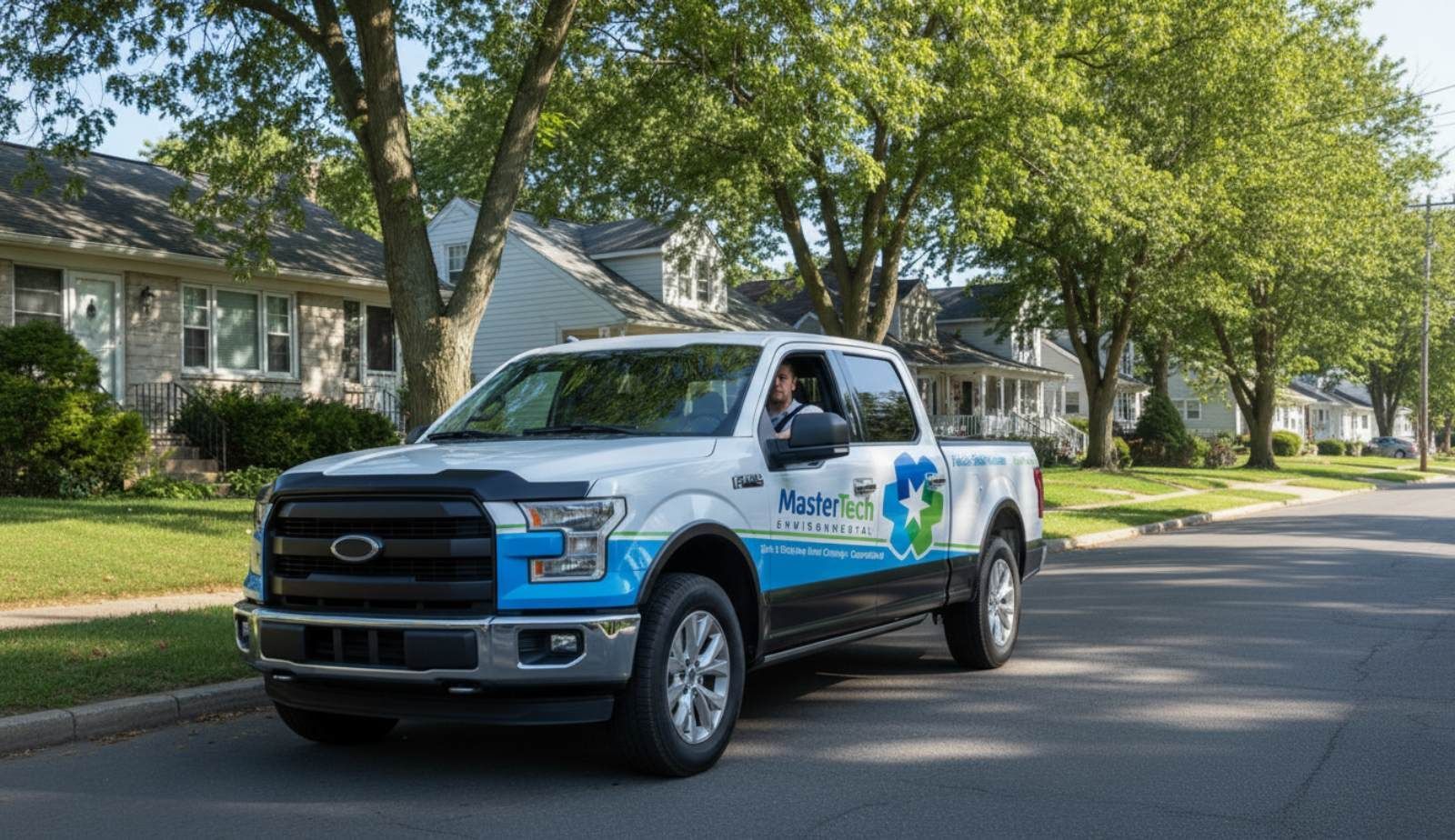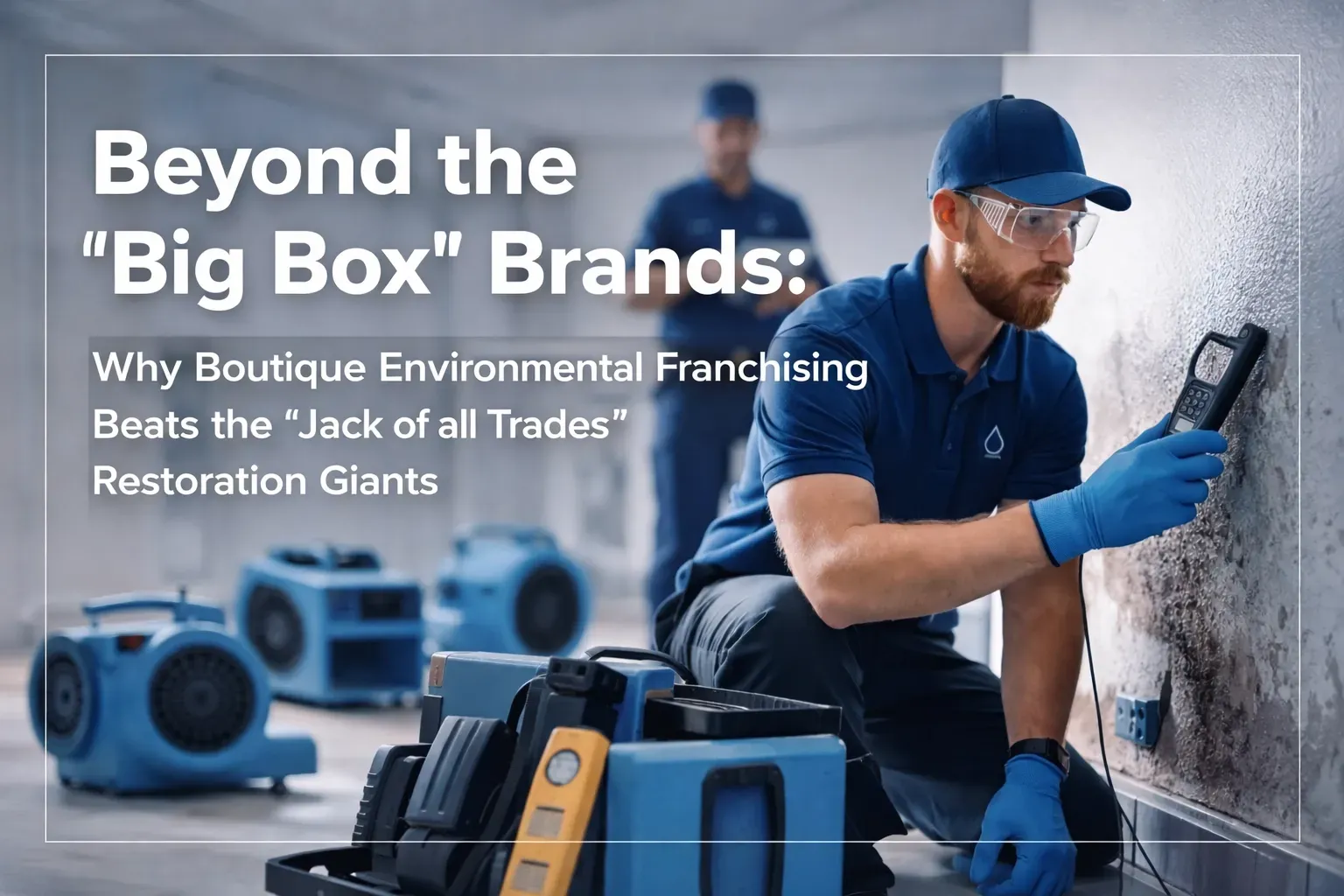
Switching Careers? Here’s Why Restoration Franchises Are Built for You
For those contemplating a career switch, the restoration industry presents a compelling option. Restoration franchises offer a blend of stability, meaningful work, and the opportunity to utilize existing skills in innovative ways. With a growing demand for services like mold remediation and water damage restoration, individuals can find fulfillment while contributing positively to their communities.
Mastertech Environmental stands out as a leader in this field, providing comprehensive training and support for franchisees. This enables individuals to seamlessly transition from corporate environments to rewarding roles in restoration. The franchise model not only fosters entrepreneurial spirit but also ensures that new business owners have the tools necessary for success.
As the restoration sector continues to expand, career changers can take advantage of its recession-resistant nature. With established systems and ongoing mentorship, entering this industry can be a smart and impactful move. Discover why making the switch to a restoration franchise could be the ideal path forward.
Why Restoration Franchises Are Ideal for Career Switchers
Restoration franchises present a viable career transition for individuals seeking new opportunities. With the industry's demand growing, these franchises offer a supportive environment and a fulfilling purpose, making them appealing for career changers.
Transferable Skills and No Industry Experience Required
Many individuals transitioning to restoration franchises find that their existing skills are highly transferable. Professionals from backgrounds such as project management, customer service, or operations often excel in restoration companies.
Key transferable skills include:
- Project Management: Organizing and overseeing restoration jobs.
- Customer Service: Communicating with clients and ensuring satisfaction.
- Strategic Planning: Developing effective strategies for project delivery.
Importantly, prior industry experience is not a barrier. Restoration franchises often welcome individuals new to the field, providing the necessary training for success. This opens the door for those willing to learn while leveraging their past experiences.
Supportive Franchise Training and Systems
Restoration franchises typically offer structured training programs that equip new owners with essential knowledge and skills. These training systems ensure that even those without construction backgrounds can thrive.
Franchisors like Mastertech Environmental provide:
- Comprehensive Onboarding: Covering operational processes and customer service.
- Ongoing Education: Regular workshops to keep franchisees updated on industry changes.
- Mentorship Opportunities: Guidance from experienced franchise owners to assist with challenges.
Such support structures greatly reduce the risks associated with starting a new career in the restoration industry, giving newcomers confidence in their roles.
Rewarding Work Helping Communities
Transitioning to a restoration franchise can be especially fulfilling, as individuals directly contribute to their communities. Whether responding to disasters or helping restore homes and businesses, franchisees play a vital role in recovery efforts.
The work entails:
- Mold Remediation: Addressing health hazards and restoring safety.
- Water Damage Restoration: Quickly returning properties to livable conditions.
- Emergency Cleanup: Assisting during crises such as floods or fire damage.
Franchise owners often report a profound sense of satisfaction from knowing they are making a difference in people’s lives. This rewarding aspect enhances job fulfillment, making restoration franchises an attractive option for career switchers.
Understanding the Restoration Industry Landscape
The restoration industry presents a robust opportunity for career changers, especially through franchising. As this sector grows, it offers stability and resilience in the face of economic fluctuations, driven primarily by environmental needs and disaster recovery.
Growth and Stability in a Changing Economy
The restoration industry has shown remarkable growth, projected to continue well into the future. In 2024, market research indicated an increasing demand for restoration services, fueled by rising consumer awareness and the necessity for rapid recovery from disasters.
Contractors focusing on residential restoration report optimism for revenue growth. With annual revenues for many restoration companies ranging from $1 million to $4.9 million, the market is thriving. Factors such as workforce training and advanced technologies also contribute to this stability, ensuring businesses can adapt to changing conditions effectively.
Recession-Resistant Business Model
Restoration companies often operate under a recession-resistant business model. When economic downturns occur, the necessity for restoration services does not diminish. Homeowners and businesses prioritize recovery over expansion in tough times.
Franchises in this sector enable individuals to tap into an established brand with proven processes. Many restoration companies offer essential services like mold remediation and water damage repair, which remain in demand regardless of economic conditions. This adaptability allows for sustained profitability even in challenging environments.
Market Demand Driven by Natural Disasters
Natural disasters significantly impact the demand for restoration services. With climate change leading to increased frequency and intensity of incidents such as floods and wildfires, restoration companies are crucial for recovery efforts.
The industry has become more proactive in anticipating these needs, creating comprehensive services that address not only immediate recovery but also long-term sustainability. Many franchise models incorporate advanced technology to streamline recovery processes, highlighting the growing importance of efficiency in disaster management.
This rising demand illustrates how the restoration industry is not just reactive but is increasingly positioned as a critical player in community resilience and recovery strategies.

Advantages of Franchising vs. Starting from Scratch
Franchising offers unique advantages for those considering a career switch, especially in the restoration industry. Key benefits include established business frameworks, ongoing support, and a simplified startup process.
Proven Business Models and Brand Recognition
Franchises, particularly in restoration, come with proven business models that demonstrate successful operations. For instance, Mastertech Environmental provides established guidelines for service delivery, ensuring quality and consistency.
Brand recognition plays a vital role, as clients often prefer known names in emergencies. This trust can lead to quicker client acquisition compared to starting from scratch, where building a brand can take years. Franchisees benefit from existing marketing strategies that have been effective, reducing the time and effort to reach a solid customer base.
Ongoing Operational and Marketing Support
One of the significant advantages of joining a franchise is the ongoing support provided by the franchisor. Mastertech Environmental equips franchisees with comprehensive training programs and operational assistance tailored to the restoration business.
This support includes regular updates on best practices and industry standards. Additionally, marketing resources are shared, allowing franchise owners to effectively promote their services. The collaboration fosters a sense of community, where franchisees can connect, share experiences, and access a wealth of knowledge from past challenges and successes.
Streamlined Start-Up Process
Franchises offer a streamlined startup process compared to starting a business independently. New franchisees receive tailored assistance in setting up their operations, from acquiring necessary equipment to navigating licensing requirements.
With established systems in place, franchisees can initiate their services faster. Mastertech Environmental guides individuals through the steps required for launching their restoration business, minimizing the usual delays associated with starting from scratch. Financial backing may also be more accessible, as lenders are typically more inclined to support franchises with proven success rates. This expedites the journey from idea to operation significantly.
Career Transition: Skills That Make You a Strong Franchise Owner
Transitioning into a restoration franchise requires specific skills that can significantly enhance success. Emphasizing attention to detail, leadership qualities, and effective communication can equip future franchise owners to navigate the challenges within this industry.
Detail Orientation and Problem-Solving
Restoration franchises often deal with intricate situations involving property damage from water, fire, or mold. Detail orientation is crucial for identifying subtle signs of damage that others might overlook.
Franchise owners benefit from strong problem-solving skills to develop effective strategies for restoration. This involves assessing various factors such as damage extent, materials needed, and timelines.
A methodical approach enhances the effectiveness of the restoration process. Utilizing checklists and prioritizing tasks can streamline operations and ensure thorough job completion.
Leadership and Team Building
Effective leadership is fundamental in a restoration franchise. Franchise owners must motivate their teams and ensure everyone understands their roles during challenging restoration projects.
Strong team-building skills foster a collaborative environment. This allows team members to rely on one another for support and expertise.
In addition, providing clear direction and constructive feedback can improve service quality and operational efficiency.
Franchise owners can implement regular training sessions to keep employees updated on safety protocols and technical skills.
Compassion and Effective Communication
Compassionate communication plays a vital role in restoration services. When clients face property damage, they often experience stress and uncertainty. A franchise owner must demonstrate empathy while guiding clients through the restoration process.
Effective communication is equally important in liaising with clients, vendors, and employees. Clarity in conveying information reduces misunderstandings and builds trust.
Active listening skills help franchise owners understand client needs and expectations. Regularly checking in on progress and addressing concerns can enhance customer satisfaction and loyalty.
Utilizing a combination of these skills will enhance a franchise owner's capacity to manage operations effectively, foster trust, and achieve business success in the restoration franchise landscape.

Overcoming Industry Challenges: Labor Shortage and Staffing
The restoration industry faces significant challenges related to labor shortages and staffing. Addressing these issues is crucial for the sustainability and growth of restoration companies.
Addressing the Labor Shortage in Restoration
Labor shortages in restoration can be attributed to an aging workforce and a lack of skilled labor. The retirement of experienced professionals, particularly Baby Boomers, leaves a gap in expertise.
To tackle this, restoration companies must actively engage in community outreach. Collaborating with local vocational schools to promote career pathways in restoration can attract younger workers.
Offering apprenticeships provides hands-on training and builds a pipeline of talent. Moreover, creating awareness about the rewarding aspects of restoration work, such as helping communities recover from disasters, can inspire interest.
Strategies for Attracting and Retaining Skilled Workers
Attracting skilled workers requires tailored strategies. First, restoration companies should offer competitive salaries and benefits. This includes health insurance, retirement plans, and performance bonuses.
Creating a positive work environment boosts morale. Companies can implement initiatives like regular team-building activities and recognition programs.
Flexible work schedules appeal to candidates prioritizing work-life balance. Offering training programs for skill enhancement also encourages retention, showcasing the company’s commitment to employee growth.
Utilizing technology for hiring processes can streamline recruitment. Platforms that facilitate easy applications and transparent communication can help companies find the right fit efficiently.
These strategic approaches ensure that restoration franchises not only attract talent but also retain valuable skilled workers in a competitive market.
Restoration 1: A Franchise Model Worth Considering
Restoration 1 presents an appealing opportunity for individuals contemplating a career shift. With a strong support system and a community-oriented approach, it stands out as a viable option in the restoration franchise sector.
Unique Benefits of Joining Restoration 1
One of the key advantages of Restoration 1 is its proven business model. Franchisees benefit from a low initial investment of $59,900, allowing for quicker entry into the market. The franchise network offers comprehensive training, equipping new owners with essential skills in marketing and business operations.
Additionally, Restoration 1 operates in a recession-resistant industry, addressing urgent needs like water, fire, and mold damage. This demand offers franchisees the potential for profitability, especially in diverse geographic markets.
Franchisees also have access to ongoing educational resources that enable continuous improvement, enhancing their service offerings and customer satisfaction.
Support Systems and Community Impact
Restoration 1 prioritizes strong support systems for its franchise owners. Upon joining, franchisees engage in a 12-day training program designed to cover critical operational aspects. This training includes techniques for effective marketing and customer service.
Moreover, Restoration 1 encourages franchisees to become integral community members. By providing essential restoration services, franchisees help homeowners and businesses recover from crises, fostering trust and loyalty.
This community impact not only benefits local residents but also positions franchisees as trusted service providers. Through collaboration with local tradespeople, Restoration 1 owners can build valuable referral networks that enhance business growth.
Comparing Leading Franchise Brands
When evaluating restoration franchises, Restoration 1 competes effectively with other leading brands. With hundreds of locations either operational or in development, it is one of the fastest-growing companies in the field. Unlike many traditional franchises, Restoration 1 offers a unique micro-market model that lowers startup costs.
This model allows for investments ranging from $67,100 to $142,725, making it accessible for aspiring business owners. Furthermore, Restoration 1’s combination of innovative marketing strategies and advanced technology positions it favorably against competitors.
Franchisees can leverage these attributes to establish a successful and sustainable business, ensuring they are well-prepared for future market demands.

Key Tips for Succeeding in a Restoration Franchise Career
Success in a restoration franchise career hinges on implementing established best practices, committing to continuous learning, and building strong relationships within the community. These elements help franchisees navigate the challenges of the restoration industry while maximizing their impact and profitability.
Leveraging Mastertech Environmental’s Best Practices
Mastertech Environmental provides franchisees with a robust framework for success. They emphasize standard operating procedures that ensure consistent quality across services.
Franchisees should adopt practices such as:
- Thorough Assessments: Conduct detailed inspections before initiating restoration to identify all areas needing attention.
- Quality Assurance: Implement routine checks during projects to maintain high service standards.
- Client Communication: Keep clients informed at every stage of the restoration process to enhance satisfaction.
Utilizing these best practices can streamline operations and contribute to a positive customer experience, thus improving overall business performance.
Continual Training and Industry Adaptation
In the fast-evolving restoration industry, staying updated with the latest techniques and technologies is crucial. Mastertech offers franchisees access to specialized training programs that cover various aspects of the business.
This training includes:
- Safety Protocols: Knowledge of safety regulations is essential for protecting both employees and clients.
- New Technologies: Understanding advanced restoration techniques and equipment can enhance efficiency and effectiveness.
- Regulatory Compliance: Ongoing education about legal and environmental standards helps franchisees avoid costly fines.
By prioritizing training and adaptability, franchisees can remain competitive and respond effectively to industry changes.
Building Customer Trust and Local Partnerships
Establishing trust with clients and cultivating local partnerships are vital for long-term success in the restoration sector. Effective strategies include:
- Transparent Communication: Clearly outline services, timelines, and costs upfront to build credibility.
- Local Networking: Participate in community events to foster relationships with local businesses and homeowners.
- Customer Feedback: Encourage and act on client reviews to continually improve service quality.
These efforts not only enhance customer loyalty but also promote positive word-of-mouth referrals, which are invaluable in the restoration industry.
Practical Steps to Start Your Restoration Franchise Journey
Transitioning to a restoration franchise offers a promising opportunity, especially for those ready to embrace new challenges. Key considerations include assessing personal readiness, understanding financial obligations, and creating a strategic plan for entry into the restoration industry.
Evaluating Your Fit and Readiness
Starting a restoration franchise begins with self-assessment. Prospective franchisees should evaluate personal motivations and skills. Experience in business management, customer service, or technical fields related to restoration can be beneficial.
Key questions to consider:
- What drives the interest in the restoration industry?
- Do they have the necessary management skills?
- Are they prepared for the demands of running a franchise?
It's essential to research specific franchises to find a brand compatible with their values and vision. Engaging with existing franchisees can also provide valuable insights.
Navigating Financing and Compliance
Financial readiness is vital for starting a restoration franchise. Prospective owners must evaluate their net worth and liquid capital.
- Typical minimum requirements include:
- Net Worth$300,000
- Liquid Capital $100,000 - $150,000
- Initial Investment $200,000 - $500,000
Additionally, understanding loan options and potential funding sources is crucial. Solid compliance with franchise regulations can help avoid future legal complications. Franchise agreements often detail these requirements, ensuring all parties are aware of their obligations.
Mapping Out Your Entry Strategy
A well-defined entry strategy is vital for operational success in the restoration industry. The first step involves completing a franchise application with the chosen brand, followed by a thorough background check.
Next, prospective owners should consider location selection. Conducting a market analysis helps identify areas with high demand and low competition. Key factors to assess include:
- Traffic patterns
- Accessibility
- Demographic suitability
Lastly, developing a marketing plan tailored to the local area will help facilitate initial customer acquisition. Utilizing both digital and traditional marketing strategies can maximize visibility and attract clients right from the start.
Frequently Asked Questions
Potential franchisees often have specific questions about transitioning to a restoration franchise. Addressing these queries can help clarify the advantages, requirements, and potential challenges involved in this career shift.
What makes restoration franchises a good career switch opportunity?
Restoration franchises offer a blend of stable demand and the ability to make a positive impact. The need for services like mold remediation and water damage restoration is evergreen due to environmental factors.
Franchisees can also enjoy the independence of business ownership while relying on a proven business model. This balance can be attractive for those seeking both financial security and personal fulfillment.
Can someone with no prior experience succeed in a restoration franchise?
Yes, individuals without prior experience can succeed in restoration franchises. Many franchisors, including Mastertech Environmental, provide comprehensive training that equips new owners with essential skills.
This training covers operations, marketing, and technical knowledge, which can help newcomers understand industry standards and best practices. The ongoing support ensures franchisees receive guidance even after initial training.
What are the typical startup costs for a restoration franchise?
Startup costs for restoration franchises can vary depending on the specific franchise and market conditions. Typically, initial investments range from $64,950 to $122,200, including franchise fees, equipment, and initial working capital.
Understanding the complete financial commitment is vital for potential franchisees during the decision-making process.
What kind of training and support do restoration franchisees receive?
Franchisees benefit from robust training programs tailored to prepare them for business operations. Initial training often lasts several days and combines classroom instruction with practical experience in the field.
Ongoing support is also essential, including regular updates on industry developments, access to a network of experienced franchisees, and marketing assistance.
How is the growth potential in the restoration industry?
The restoration industry shows consistent growth due to increasing awareness of environmental issues and property damage. As more homeowners prioritize maintaining their properties, the demand for restoration services continues to rise.
Franchise opportunities in this sector allow for scalability and adaptability, enabling franchisees to expand their operations as market needs evolve.
What are the key challenges when starting a restoration franchise?
Starting a restoration franchise comes with challenges, such as navigating regulations and ensuring compliance with industry standards. Franchisees must also establish a customer base and build brand recognition in their local market.
Managing operational aspects effectively, from employing skilled technicians to maintaining quality service, is crucial for long-term success.
Get in Touch
Contact Us
Don't be a stranger!
30 Broad St, Unit 7
Denville, New Jersey 07834



